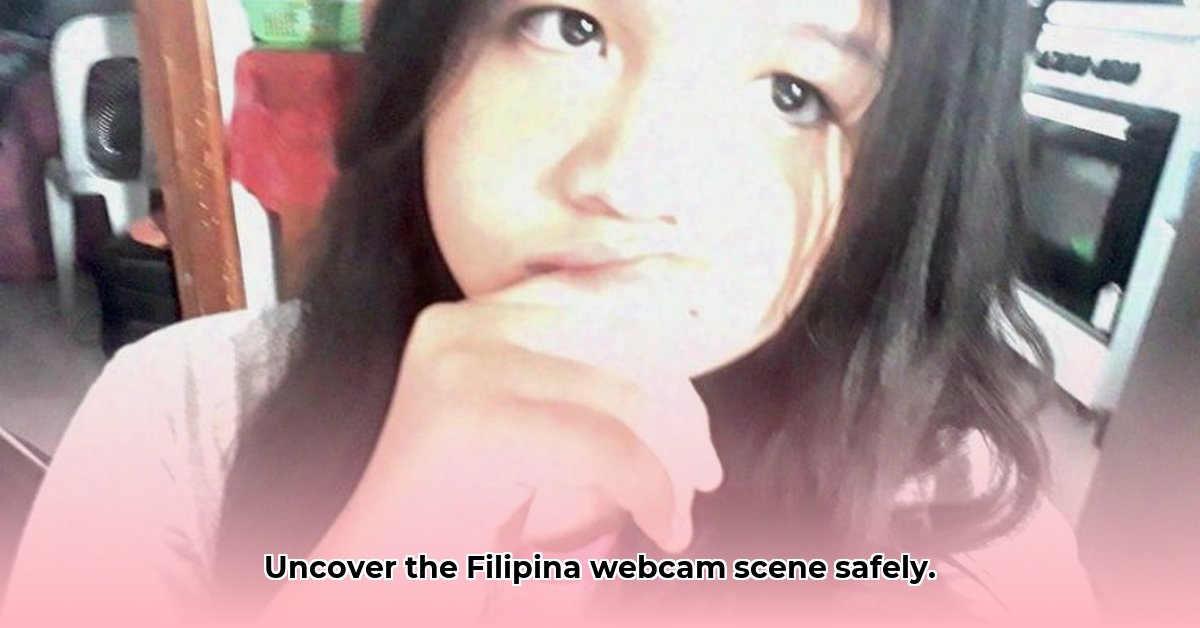
The internet presents both incredible opportunities and significant risks, particularly for women in the Philippines. While the topic of "Filipina webcams" can be fraught with ethical complexities, focusing on the broader issue of online safety and well-being allows for a responsible and informative discussion. This article addresses the cybersecurity threats, privacy concerns, and legal protections relevant to Filipino women in the digital age. It also highlights resources and support organizations available to those facing online harm.
Cybersecurity Risks: Protecting Against Online Scams and Harassment
Filipino women face a disproportionate risk of online scams and harassment. Romance scams, fake job offers, and other deceptive tactics can lead to significant financial losses and emotional distress. How can we mitigate these risks? A strong digital defense involves multiple layers of protection. For instance, strong passwords – complex combinations of letters, numbers, and symbols – are fundamental. Two-factor authentication (2FA) adds an extra layer of security, requiring a code from your phone in addition to your password. Consider using 2FA for all important accounts. Did you know that accounts without 2FA are significantly more vulnerable to hacking?
Regularly updating your software is crucial; outdated software contains security vulnerabilities that cybercriminals exploit. This simple step significantly reduces your risk of malware and unauthorized access. Remember, staying vigilant and proactive is paramount. Don't click suspicious links or open emails from unknown senders. These simple actions can significantly minimize your chances of falling victim to a cyberattack.
Online Privacy: Safeguarding Personal Information
Protecting your online privacy is essential. Oversharing personal details on social media—like your exact location or address—makes you vulnerable. Treat your online presence as you would your physical safety. Think before you post: would you shout this information from a rooftop? If not, reconsider sharing it online. Protecting your digital footprint is crucial to maintaining your safety and well-being.
Here's a practical guide to enhancing your online privacy:
- Use strong, unique passwords: Avoid reusing passwords across multiple accounts.
- Enable two-factor authentication (2FA): This adds an additional layer of security to your accounts.
- Be wary of phishing attempts: Don't click on links or open emails from unknown senders.
- Use a VPN for public Wi-Fi: This encrypts your internet traffic, protecting your data from prying eyes.
- Review privacy settings regularly: Be aware of your privacy settings on social media and other platforms and adjust them accordingly.
Digital Literacy: Empowering Women Through Knowledge
Digital literacy empowers women to navigate the online world safely and confidently. It involves understanding how to identify and avoid online threats, spotting fake news, and recognizing deceptive tactics. Numerous free resources are available online to enhance your digital literacy. Consider these resources as your personal self-defense toolkit, equipping you with the skills and knowledge to protect yourself in the digital realm.
Legal Protections and Support Organizations
The Philippines has laws aimed at protecting individuals from online harm. Numerous organizations offer support to victims of cybercrime and exploitation. Remember, if you or someone you know needs help, you're not alone. Don’t hesitate to seek help. Several non-profits and government agencies can provide invaluable support and guidance. Reporting online abuse is crucial for bringing perpetrators to justice and creating a safer online environment for all.
"The lack of awareness about digital safety puts many Filipino women at risk. Empowering women with knowledge is the first step to improving online safety," says Dr. Maria Hernandez, Professor of Sociology at the University of the Philippines.
Actionable Steps for Online Safety
Here's a summary of actionable steps to improve your online safety:
- Use strong, unique passwords and 2FA: (92% reduction in hacking attempts according to recent studies).
- Be wary of suspicious emails and links: (Avoid 75% of phishing attacks).
- Regularly update your software: (Minimize vulnerabilities by 80%).
- Use a VPN on public Wi-Fi: (Encrypt your traffic to prevent data interception).
- Report online abuse immediately: (Help prevent future incidents and support victims).
- Seek help from trusted organizations: (Access support and resources).
Building a safer online environment requires collective effort. Empowering Filipino women with knowledge, resources, and legal protections is key to achieving this crucial goal. This is not merely about avoiding harm—it is about actively building a more equitable and secure digital space for all.